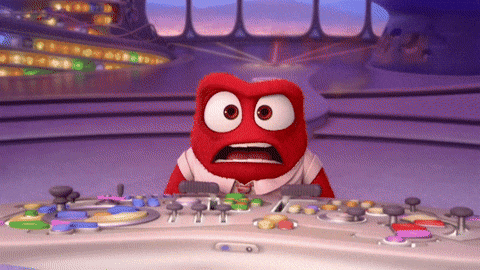Structure vs Playfulness: How to get stuff done without feeling a failure
You know the feeling...
You’ve sat down on the 1st of the month and thought about everything you want to achieve. It’s a fresh start, a new opportunity to re-calibrate your goals and showcase your planning and scheduling prowess.
The idea of creating structure to your world is thrilling. It lights a fire within you. You grin giddily as you fill your google calendar with activities and meticulously plan your to-do’s in your paper planner. You can barely think straight you are so high off the joys of structure.
But then….. something peculiar happens.
The time comes to get the stuff done, and you feel uninspired. The routine you once looked to brighten your dark skies, now bores you. You struggle to stick to the plan, you fail on your goals, you berate yourself.
Why can’t I just do the things I set for myself? Why do I find it so hard to follow the plan? How can I be so good at organising, and have no follow through?
You slump into a sense of self defeated-ness, and eventually on your next whim of inspiration , you crack out your pens again, you open up your calendar for the next month, and the cycle begins… once again…
As someone with a love of structure and organisation but also a rebellious playful spirit, this is a pattern I know all too well.
Let’s talk about it.
What we’ll cover:
Myths about goal setting and productivity
Emotional range
Emotional awareness
Motivation
How to be structured yet playful so you can get stuff done and stop feeling like a failure
Acceptance
Embrace playfulness
Self trust
The purpose of structure
Flexible structure
Getting okay with change
Playful Scribblings
A twice monthly newsletter about all things relationships, being playful about who you are, and saying fuck-a-doodle-do to societal expectations.
Want in? 👇
Myths about goal setting and productivity
Firstly let’s dispel some myths.
If you’ve been through the same productivity phase as I did early in my career, you’ll have read a lot of self-help books along the lines of ‘be the best you can be’, ‘be productive all of the time’, ‘It’s all about mindset’ and ‘if only you weren’t so shit you’d be as successful as I am’.
But these leave out some very important parts of being ‘productive’ - Our individual needs, strengths and differences.
Let’s take a look first at those pesky, inconvenient things we call emotions.
Emotions
“We are not thinking machines that feel, we are feeling machines that think.”
'We are not thinking machines that feel, we are feeling machines that think.'
Antonio Damasio has known that since the 80s, so why hasn’t the ‘you just need to think more productively’ self help world caught up yet?
Emotional Range
We each have a very different emotional landscape and a different level of comfortability (I thought I’d just coined this but yes, it is a word) in how we understand, control and express our emotions.
If I take myself as an example, I have a pretty large emotional range and intensity. If I’m happy I’m ecstatic, I go about myself with cheer and pep. I once had to stop writing my masters dissertation because I was so giddy about all the connections popping off in my brain, I couldn’t think straight.
Equally, sadness hits me quite hard, and so do the emotions of others (hello, empathy).
So if emotions impact our ability to be productive (and they do), that provides quite a large landscape to contend with when trying to get stuff done.
On the other hand, someone who has the emotional variance of a potato (they do exist, and I’m curious what their secret is) may not feel the need to create so much structure for themselves because they know if it’s on the list, they’ll get it done with little likelihood of being derailed.
Emotional awareness
On the flip side, I’m also very emotionally aware which equips me well for knowing how to move through my emotions so I can get stuff done. Whilst someone who isn’t emotionally aware may struggle to piece together why they have been procrastinating on that one small thing for so long, and put actions in place to move through their resistance.
Neither is good or bad. It just is. And it’s important because it impacts the types of goal setting and productivity methods that different people respond to.
Motivation
I mean this is a huge topic really isn’t it? But seen as we’re talking specifically today about structure versus playfulness, I wanted to highlight something poignant I learned whilst reading the playfulness research this week.
“Playful people aren’t motivated by tangible goals and rewards.”
Research shows that people with playful traits such as spontaneity, creativity, a desire to seek joy and fun, are not motivated by tangible goals and rewards. Hang on, yes you read that right.
WE ARE NOT MOTIVATED BY TANGIBLE GOALS.
This made so much sense to me as someone who has tried EVERYTHING to extrinsically motivate myself to reach a goal, with no success. And I’ve used that failing as evidence to form a (false) internal belief of myself as someone who cannot follow through on a goal or be consistently productive.
When your motivation is intrinsic, it needs to come from within. So how do you balance waiting for spontaneous motivation to strike, with a need to structure yourself so you actually make stuff happen?
It’s a quandary I have been pondering for the majority of my adult life, and I’ll share my tips below. I want to start with one change in particular that set the scene for me to put the other changes in motion…
How to balance structure and playfulness so you can get stuff done and not feel like a failure all the time
Acceptance
I used to fight soo hard against the fact that I’d want to change the plan. How could I be someone who loves creating structure but then is unable to follow it? It made no sense to me. Surely you can’t be a great organiser and also spontaneous?
“You can be an organisational wizard and also follow your inspirational whimsy.”
In trying to define ourselves, it’s easy to fight against who we are when it doesn’t quite fit into the boxes we see as coherent.
But you can. You can be an almighty organisational wizard who gets a thrill from scheduling your tasks on a spreadsheet, and still be someone with a whimsical desire to throw the plan out the window and follow their inspiration wildly into the forest.
So accept that about yourself. And hello… welcome.. You are in safe hands now.
Learn to trust yourself
Part of our unwillingness to let go of structure is because we fear that if we are left to our own devices, we won’t get anything done. There may be some truth in that, as I explain later on, but if you set yourself up correctly and embrace the playfulness, you will do the work and feel a damn sight better whilst getting in done.
But you need to learn to trust yourself.
A great place to start is to track your accomplishments. Whether it’s a journal, a scrapbook, or a couple of lines in a piece of paper each day, make a note of what you get done and what you achieve. Keeping evidence is a great way to remind yourself how much you have done when the inner critic comes a knocking.
Accept that structure has a purpose for you (even if you don’t follow through with it)
From my own experience and from talking to, and working with, people who feel the same way, the sheer action of creating a plan serves a purpose in itself, even if you don’t follow through with it.
For example, when I feel stressed or overwhelmed I sometimes spend an hour structuring my time for the week, or the next month, knowing that it might change by the time I get to it. But the point is, the sheer act of being able to plan gives me a sense of control that I need to feel comforted in the moment. It doesn’t need to be anything more than that, so let go of any self criticism when you don’t follow through with it.
“The sheer act of making a plan gives me a sense of control that is comforting. It doesn’t need to be anything more than that.”
Embrace playfulness
You probably don’t trust yourself to get anything done without a plan, but have you ever tried not having one? Choose a day and make no plans. Follow your playfulness and inspiration and see what you do. You’ll surprise yourself at what you get done when you give your playful side permission to roam. It doesn’t mean you always have to work this way, but personally I think it’s good for the mind and soul to do this once a week if possible!
Too much? There is a middle ground I highly recommend as part of your general routine…
Bring playfulness into your day-to-day. For example, when I need to do a boring piece of admin work I’m avoiding, I put on some funky music and my disco light and I make it a party. If I’ve scheduled myself to do a task at a certain time and I really don’t feel like it, I’ll let myself do something I feel like instead. Letting your rebelliousness have it’s moment and getting it out of your system, will be more productive in the long run than fighting it.
This leads me nicely on to…
Create a flexible structure
I used to not trust that I would get the stuff done because I associated my spontaneous spirit with being very unreliable. So I would schedule myself down to the minute detail. My daily calendar blocked out with what specific task I was going to work on when.
Plus I read a shit load of generalised productivity advice that said that was helpful to ensure focus, remove decision making and maximise output. Maybe for some people, but for me it felt like creating a prison for myself, that I became trapped in and give myself a hard time for not being able to get out of, even though it was a prison I’d created for myself.
Equally, trial and error has taught me that without some kind of structure the day feels overwhelming (especially now as a self employed person), and that I can easily slip into re-watching episodes of Dawson’s Creek under my blanket in a giddy ‘oooh this is naughty hehe’ kind of way. Very unhelpful for overall wellbeing and productivity.
Alas, the flexible schedule was born! For example, I block out 4-6pm each weekday to write, but I don’t dictate to myself ahead of time what that will be. I look through my ideas list and decide what I feel excited about writing today. And if I feel like doodling instead, I’ll do that.
Yes sometimes it sounds like a childs brain in an adults body, but isn’t that all adulthood really is?
Get Used to Change
“I thrive off novelty so I’ll get bored and want to change things. That’s okay.”
All of the stuff I’ve told you I’m currently doing, I probably won’t be in two months time. Why? Because life changes, our schedule changes, our mental energy changes and I know I thrive off novelty so I’ll get bored of my current way of doing things.
And that is OKAY.
You make the rules here, and the sooner you stop fighting yourself for being someone that likes a fresh way of doing things, or gets bored in the same old structure, whilst craving structure, the sooner you can use it to your advantage and not only be more productive, but feel a whole lot better about yourself whilst doing it.
Playful Scribblings
A twice monthly newsletter about all things relationships, being playful about who you are, and saying fuck-a-doodle-do to societal expectations.
Want in? 👇














I help late diagnosed ADHD folk make career and life decisions they trust. ICF Certified Coach, Youtuber & Writer.